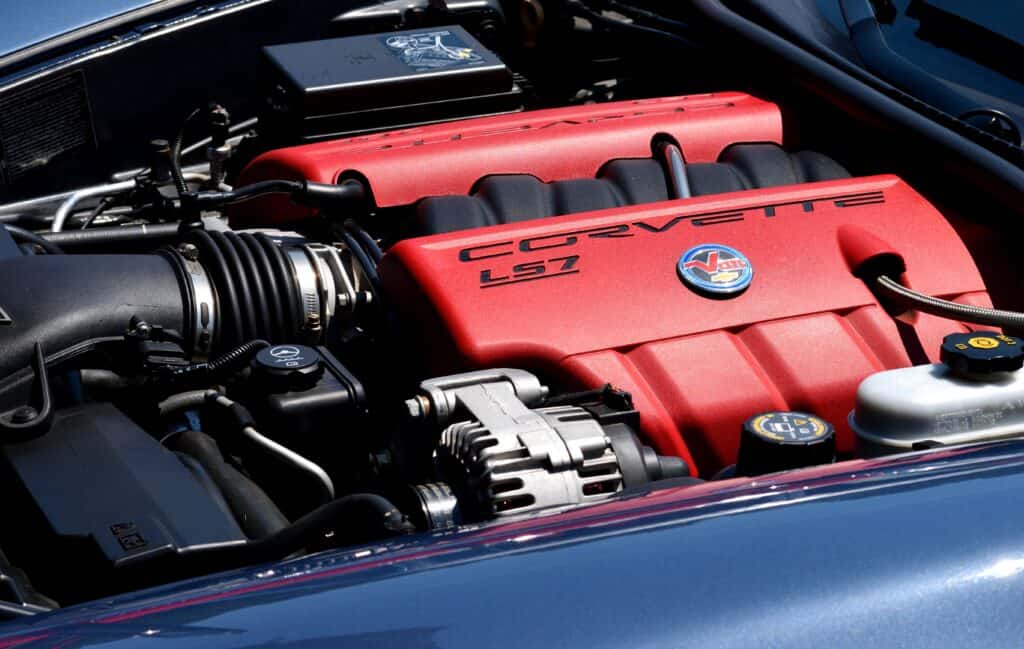As an Amazon Associate we earn from qualifying purchases.
You might be thinking that choosing motor oils for your vehicle is a very easy task. However, it isn’t. To opt for the best motor oil, you need first to check the manufacturer’s manual and then consider factors like viscosity, thickness, cost, etc., to name a few.
Finally, you can make a conclusion based on the demands of the engine. Considering the selected engine and vehicle types, 10w40 and 15w40 are two competing oil types that need enlightenment. So, let’s check out their specifications.
10w40 vs 15w40
Getting an impactful insight into the differences and similarities between these two oils will help people decide better. But first, you need to ensure that your vehicle or equipment is compatible with the use of these oils.
Check the manufacturer’s manual to get an idea of it. Once you verify that, go ahead with this 10w40 vs 15w40 article to decide the right one.
10w40 Specifications
10w40 is one of the best motor oils in the lot, preferable for use in vehicles that have driven more than 75000 miles.
The numbers within the name of this oil type, 10 and 40, stand for elaborating its viscosity rating. The number 10 denotes the viscosity rating of this oil at low temperatures, whereas the number 40 denotes the viscosity rating at high temperatures.

This oil is quite efficient in terms of thickening and thinning at appropriate temperatures. Therefore, it is one of the preferable low-temperature, multi-grade oils that the auto manufacturers recommend on priority.
It has the potential to act like SAE 10 motor oil at low temperatures and as SAE 40 for high operating temperatures. Both SAE 10 and 40 are single-grade oils. However, 10w40 is a synthetic blend, deriving multi-grade outcomes.
10w40 is more glutinous, has an excellent thermal breakdown capacity, and reduces deposit formation. Also, this oil consists of polymers that speed up or slow down the thickening or thinning rate of the oil, depending upon the fluctuation in temperatures.
Therefore, one can get this oil in either synthetic grades or conventional form. In addition, this oil is preferable for both summers and winters.
15w40 Specifications
15w40 is a very common engine oil for diesel engines. It has the formulations to help enhance the life of your vehicle engine. Also, it has the potential to protect the engine of your vehicle against severe weather adversities, rough roads, and others circumstances.
This oil has a smooth flow at low temperatures with a viscosity grading of 15. And, it flows at high temperatures with a viscosity grading of 40 when the engine reaches the highest operating temperature.
The engines with a requirement of API CK-4, CJ-4, and all below can use 15w40 motor oil. 15w40 motor oils are embedded with triple-protection technology and are made out of special manufacturing to resist oil breakdown and deposit accumulation.
It is premium engine oil, especially for highway fleets and pick-up trucks with diesel engines. Furthermore, the formulation of this oil makes it ideal for LNG and CNG engines as well.

The additives and vase stocks are balanced within this oil and offer ideal nitration, thermal, and oxidation stability. Along with that, it also has the potential to minimize the deposit accumulation post-combustion within the chamber.
It helps the engine operate seamlessly, even in the most severe operating conditions. Also, it implements shear stability to the engine upon use, which reduces oil consumption. Moreover, it also offers protection to the cylinder-liner scuff.
It comes with active dispersancy or detergency that plays a major role in keeping the engines cleaner over time. Moreover, this oil also has low phosphorous and Zinc contents that contribute to extending the life of the catalytic converter within the engines.
Similarities of 10w40 and 15w40
- Both 10w40 and 15w40 have the same high or operating temperature viscosity rating of 40.
- These oils can keep the engine functioning at a high temperature of up to 100 degrees Celsius.
- Both these oils have the potential to offer oxidation stability to the engine.
- Moreover, both of these oils are preferable for engines that have covered over 60,000 miles.
- These engine oils are well-suitable for use in vehicles in hot or cold regions.
Differences of 10w40 and 15w40
- The low-temperature viscosity rating of 10w40 is ‘10’, whereas, for 15w40, it is ‘15’.
- 10w40 is comparatively a bit expensive than that of 15w40.
- 10w40 breaks down quicker than that of 15w40 oils.
- The viscosity indexes are more in 10w40 oil than 15w40 oil.
- 15w40 shows fewer changes depending upon the change in temperatures in comparison to 10w40.
- 10w40 oil is thicker in cold temperatures than that of 15w40 oil.
Major Distinguishing Factor
The major distinguishing factor between 10w40 and 15w40 oil is its viscosity index. The viscosity index for the 15w40 motor oil stands at 135, whereas for 10w40, it is 150. Moreover, the pour point for 10w40 is -42 degrees Celsius, whereas, for 15w40, it is -34 degrees Celsius.

When to Use 10w40?
10w40 is ideal motor oil for moderate engines, such as light vans, SUVs, and passenger cars. Moreover, this motor oil also has the potential to withstand cold climates, slightly better than that of 15w40 and 10w30. It is also an apt choice for hot regions. So, consider your choice accordingly.
When to Use 15w40?
15w40 is more like the motor oil for heavy-duty vehicles. It is preferable in passenger buses, pick-up trucks, and highway fleets.
Hence, this is robust engine oil, specified for all seasons. So, any kind of engine that undergoes high performance requires a suitable oil, like 15w40.
Final Verdict
These oils are best in serving their ideal purposes. So, you need to consider the manufacturer’s manual to ensure that you are picking the right oil for the engine.
An inappropriate oil will fail to meet the lubrication requirements of the engine components. As a result, friction will take place among the components, which will increase wear and tear.
Both these oils are ideal considerations for selected engines, but when it comes to the cost factor, 10w40 is a bit more costly than 15w40. Hence, decide wisely and to help you with that, 10w40 is compared to 5w40 together with 15w40 to deepen your understanding.

